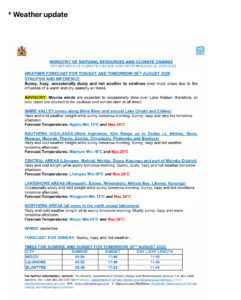

* True national progress is not only measured by how far vehicles can travel, but also by how far minds can think. Good roads connect places, but good minds connect ideas
* Investment in education, research, innovation and skills training is key to unlocking Malawi’s potential and preparing the youth for a competitive future
* As UNICEF-Malawi reports that 87% of 10-year-olds in the country cannot read or comprehend a simple text following high pupil-to-teacher ratio in rural areas that resulted in overcrowded classrooms and insufficient teaching materials, negatively impacting the quality of education
By Steve Chirombo, MANA & Duncan Mlanjira, Maravi Express
President Lazarus Chakwera has emphasised that Malawi’s development must extend beyond physical infrastructure such as roads and bridges to include what he termed “gray matter infrastructure.”

Advertisement
Speaking during whistle-stop tours at Chikwasa, Chilanga and Kanyama trading centres in Dedza today, Chakwera said true national progress is not only measured by how far vehicles can travel, but also by how far minds can think.
He underscored that investment in education, research, innovation and skills training is key to unlocking Malawi’s potential and preparing the youth for a competitive future.
“Good roads connect places, but good minds connect ideas,” Chakwera said, urging Malawians to embrace both physical and intellectual development as foundations for lasting prosperity.
The President further appealed to communities to desist from marrying off children, stressing that such practices undermine the country’s aspirations under the MW2063 national vision.
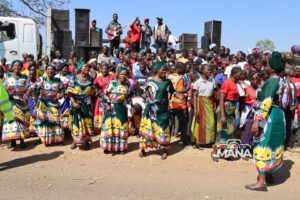
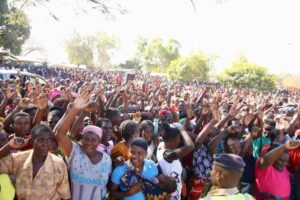

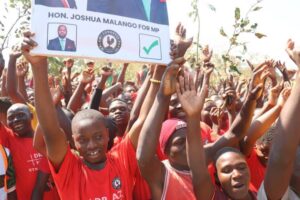
In its on the situation of children in Malawi in 2024, published on the UNICEF Malawi website, the United Nations Children’s Fund (UNICEF)-Malawi, finds out that 87% of 10-year-olds in the country cannot read or comprehend a simple text.
Quoting Malawi Partnership Compact April 2024 survey, UNICEF indicates that the high pupil-to-teacher ratio in rural areas — 120 pupils for every one teacher — resulted in overcrowded classrooms and insufficient teaching materials, negatively impacting the quality of education.
“Every child has the right to learn, and education is a fundamental human right,” says the report. “In 2024, the Government of Malawi committed to ensuring school readiness for every young child in Malawi and launched a plan to incorporate pre-primary classes in all public primary schools by 2025.

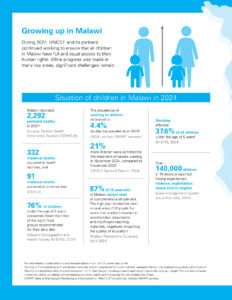
UNICEF reports that it supported the Ministry of Basic & Secondary Education and the Ministry of Higher Education through capacity-strengthening, planning and preparatory activities — including nationwide consultations and school mapping exercises, and through the development of a comprehensive pre-primary curriculum.
It also supported an early childhood education costing and financing study to determine financial requirements,” says the report, adding that food insecurity, inadequate infrastructure, insufficient caregiver capacity and limited access to play materials — “remained significant barriers to children’s attendance at community-based childcare centres (CBCCs)”.
“In response to these challenges, UNICEF worked with partners to link CBCCs with care groups for integrated household farming and livelihood initiatives — building community resilience. A comprehensive CBCC assessment was commissioned in December 2024 to identify systemic gaps and strengthen early childhood development services.
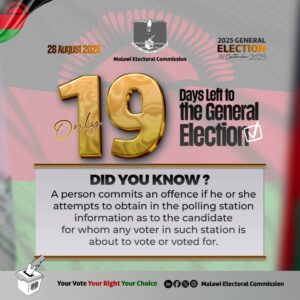
“To ensure continuity in early learning, UNICEF supported coordination between the Ministry of Basic & Secondary Education and the Ministry of Gender, Community Development & Social Welfare to facilitate the transition of children aged 3-5 years from non-formal to formal early learning settings.”
The report adds that UNICEF and the Ministry of Basic & Secondary Education supported the development of the Malawi Partnership Compact (2023–2027) through a global partnership for education (GPE) system capacity grant.
“This initiative enhanced the quality of foundational teaching and learning for all girls and boys with a focus on improving inclusive school readiness and foundational learning, as well as strengthening education system capacity, governance and accountability.


Advertisement
“To help address poor learning outcomes, UNICEF provided support to 895 schools across various initiatives, through the distribution of teaching and learning resources, e-learning devices, education kits, desks and other furniture for schools, and school bags for students; by facilitating school connectivity; and through assistance to disaster risk management services, WASH services and violence prevention initiatives.
“The primary-to-lower secondary school transition rate improved, from 42.2% in 2022–2023 to 49.7% in 2023–2024, as did the Gender Parity Index for secondary education, from 0.92 to 0.99 in the same period, per EMIS. This success can be partly attributed to UNICEF’s scholarship programme for disadvantaged girls.
“The education sector budget remains the largest sectoral allocation. Yet, allocations have stalled in real terms and consistently decreased as a share of the total government budget, from 16.7% in 2020–2021 to 14.8% in 2024–2025 — as allocations to debt servicing costs have surged from 15% to 24.1%.”
